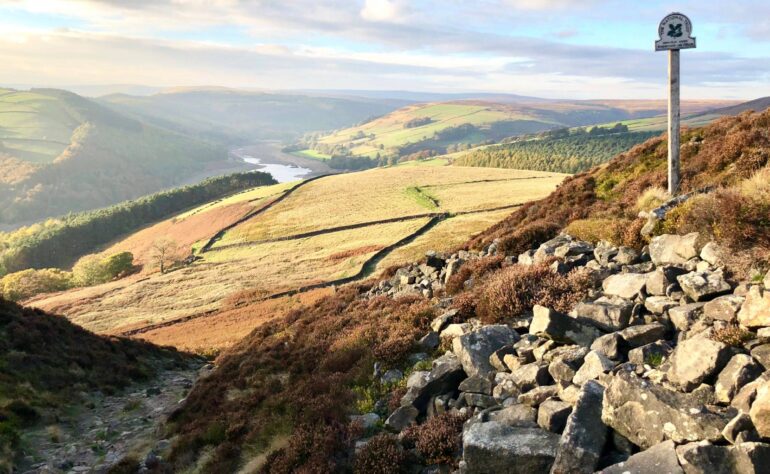The National Trust has tightened up the rules surrounding management of a vast expanse of moorland in the Peak District for grouse shooting.
Following a consultation held over the spring, the National Trust—which manages the 32,000 hectare High Peak Estate on behalf of the nation—has agreed that trapping and snaring of wild mammals and birds to artificially drive up numbers of grouse for shooting will no longer be permitted.
Shooting tenants were formerly permitted to kill native stoats, weasels, foxes and corvids where they interfered with shooting operations by predating on game birds.
It has also halted the use of non-therapeutic medicated grit which is deployed to sustain unnaturally high populations of game birds despite being an environmental pollutant. A ban on burning on peatlands, a harmful practice used to provide young heather for grouse to eat, will also be enforced to ensure the carbon-rich habitats can be fully protected and restored.
Wild Moors, which submitted evidence to the Trust’s consultation on grouse shooting, urging it to take action, has welcomed the progress, although said it falls short of the complete end to grouse shooting which is needed to safeguard wildlife and the environment.
Luke Steele, Executive Director of Wild Moors, said:
“It’s encouraging to see that, following its consultation on grouse shooting, towards which Wild Moors contributed evidence on the impacts of the practice on wildlife and the environment, the National Trust has restricted some of the most harmful and intensive elements of grouse moor management on the High Peak Estate.
“We encourage the National Trust to now go the whole way by bringing its grouse shooting leases to a permanent end. This will ensure the iconic and treasured High Peak Estate can be fully restored for nature, climate and people.”.
Campaigners’ fears that the new measures don’t go far enough have been validated this week after two hen harrier nests, each with five eggs, failed to produce chicks on the High Peak Estate due to the suspicious disappearance of the male birds.
The males were feeding the females incubating the eggs. When they failed to return the females abandoned the nests.
The National Trust has described the incident as “deeply concerning” and said it’s “indefensible these beautiful birds still face persecution”. But Wild Moors has said that this is the latest in a long line of incidents involving birds of prey on the High Peak Estate.
Since 2006 campaigners have reported nine cases in which birds of prey have been shot, trapped, poisoned or vanished under suspicious circumstances.
Luke Steele adds:
“Whilst we welcome the recent steps taken to tighten up the rules on grouse shooting, the National Trust must face the facts that for as long as grouse shooting continues on its land so does bird of prey persecution. This latest incident must be the final straw which results in grouse shooting being ended on National Trust land.”
Ends
Notes for editors
For more information or interview requests please contact Wild Moors on info@wildmoors.org.uk
Wild Moors campaigns to unlock an area of uplands the size of Greater London from grouse shooting for nature restoration by 2030. By working with communities, companies and governments to solve challenges facing the upland environment Wild Moors acts as a catalyst for creating effective and lasting change.
